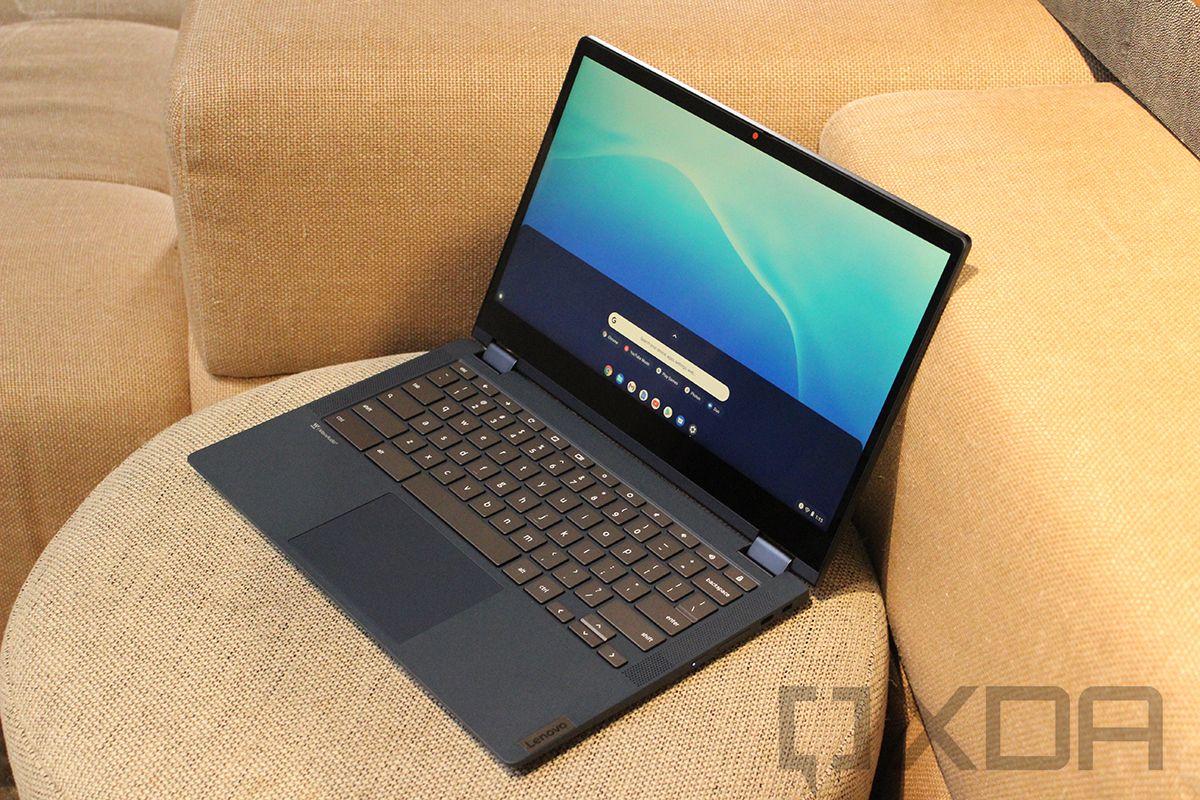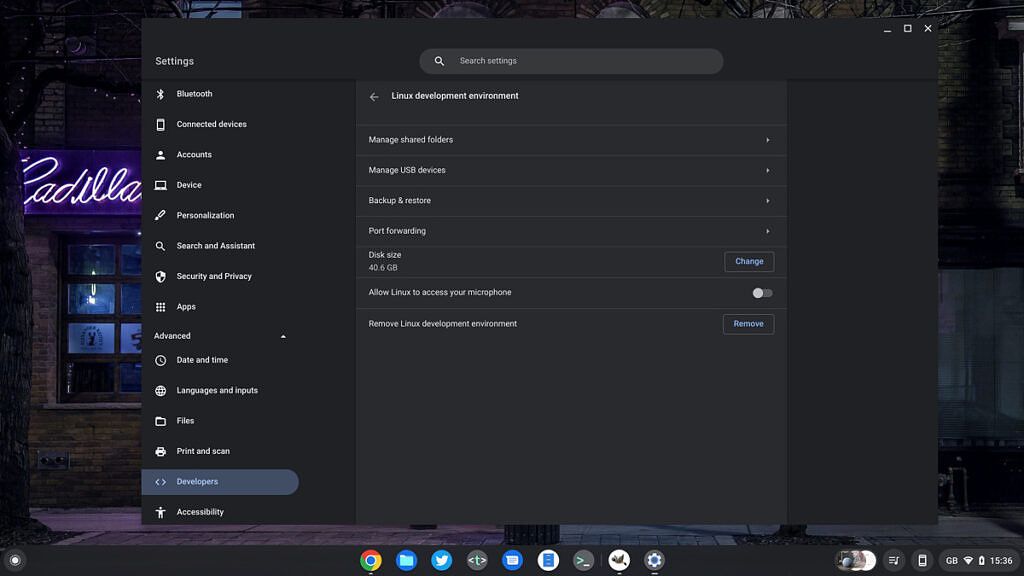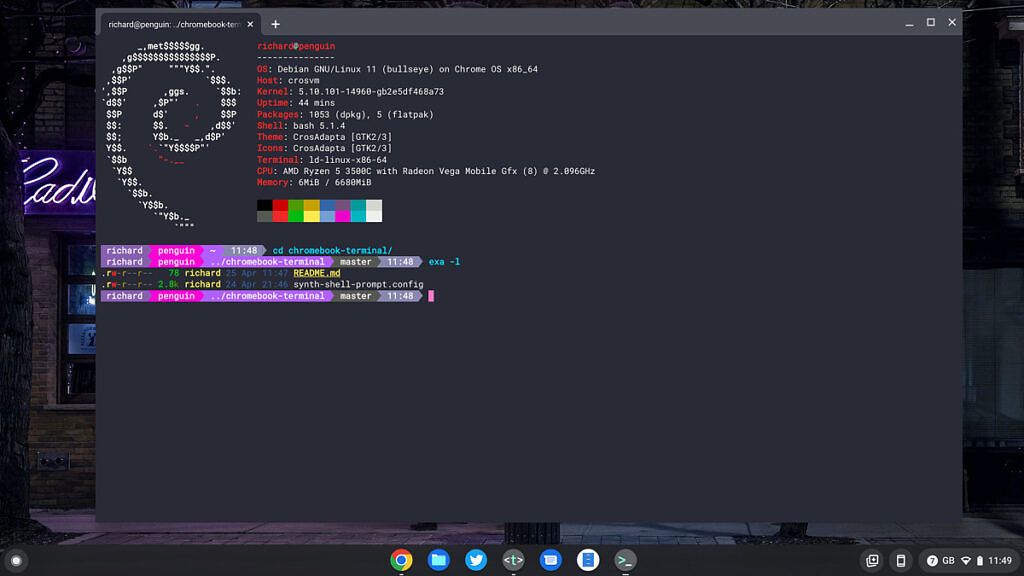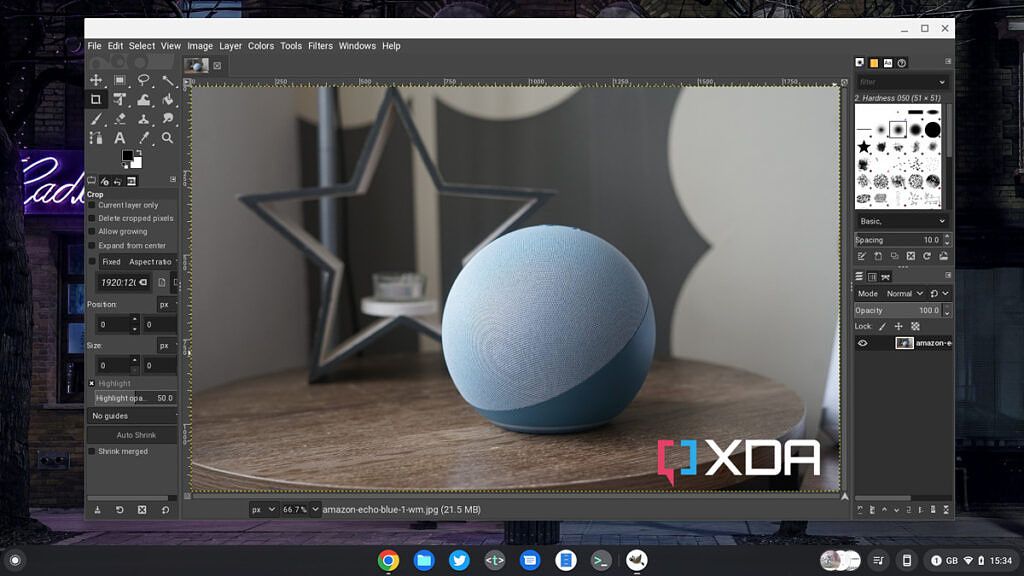The best Chromebooks you can get today have come a long way from the early days. No longer is Chrome OS just a fancy browser running on a laptop. It has grown to incorporate Android and Linux and the platform is now a lot more capable than you might have thought.
The second of those is particularly important. I'm not about to preach about how everyone should immediately switch to Linux. Or that 2022 is the year of the Linux desktop. Or anything like that. However, it is in the limelight right now with the immensely popular Steam Deck on the shelves.
Why am I talking about learning Linux? Well for one, it's never too late or a bad idea to learn something new. Linux isn't just some other desktop operating system you don't currently care about. It has plenty of applications out in the big wide world. All those cloud servers? Running Linux. On a smaller scale, the Raspberry Pi is a tiny, extremely flexible Linux computer you can use to do many wonderful things. A Chromebook is a great place to play around with Linux in relative safety.
Linux and Chrome OS: A match made in harmony
My own love affair with Linux began in 2020 during the great global event that kept us all indoors a lot more. I'd dabbled with Chromebooks in the past, but mainly because my work keeps me in the browser all day. I picked up a cheap Acer Chromebook to play around with but eventually, it went back in the drawer.
Then I found it, applied many, many updates, and brought it up to date. And that included the Linux support that until then I had missed out on. And this is where the journey began. I enabled Linux and started doing a lot of Googling.
Enabling Linux adds a Debian container seamlessly into your existing Chrome OS setup.
But what exactly is it all about? The short version is that enabling Linux on a Chromebook adds a Debian container on top of the OS. Chrome OS itself is based on Linux, but highly customized. Linux is described on Chromebooks as a "developer environment" and it lives alongside anything else you have on your machine.
The Debian container is a fantastic place to tread your first Linux footsteps because there's no risk to the rest of your laptop. It's isolated from Chrome OS, though it does have integrations. You can share folders from Chrome OS to Linux, you can view Linux files in the Chrome OS Files app. You have the ability to share USB devices, such as your microphone, with the Linux container. You can almost use Linux like any other app, dipping in and out of it at your leisure.
The beauty of this sandboxed approach is that if you mess something up, you can just destroy it and start again. It's so simple to set up that anyone can do it. In my case, it happened a lot, and while I found my feet I certainly appreciated the ease of use on Chrome OS over using Linux on a dedicated machine.
Get comfortable with the terminal
It's easy to point to memes about Linux users and the terminal. But when you're comfortable using it and any of the many terminal-based tools you can use, you might find your mind firmly changed. Using the terminal is a fast and efficient way of getting things done. And in server environments or even on a headless device like a Raspberry Pi, you're going to use a lot of Terminal.
I used to wonder why I would ever need to use a terminal. Now I spend much of my day inside one, and I'm no developer. I use Neovim to write all my work before putting it into our CMS. I use Ranger when I want to dart about the Linux and Chrome OS file systems. I use Git and Github to synchronize various configuration files and settings between machines. Taking notes, using SSH to connect to other machines, running speed tests, or even checking the weather forecast. All things I do from the terminal with text commands. Never once needing to interrupt my flow to use a mouse or trackpad, or open another application.
Getting comfortable with Linux and the terminal has truly changed my personal workflow. Proof you don't have to be into coding to make it work for you. There are terminal clients that can do all kinds of crazy things, even checking Twitter and Reddit or opening full web pages. But beyond just making the workday faster, I truly feel like I've learned something useful.
Linux also makes Chrome OS better
If you want to learn Linux from scratch a Chromebook is a great place to start. There's plenty of choice at affordable prices and there are some really nice Chromebooks out there now. But there's another thing Linux does on a Chromebook. It makes Chrome OS better.
Linux makes Chrome OS better.
Chrome OS is still heavily reliant on web apps and extensions. It has Android built-in now, but I'm not much of a fan of that. It uses up so much of the system resources that I haven't personally been able to justify leaving it enabled.
Linux, on the other hand, is a better way of plugging the gaps Chrome OS can't on its own. Alongside being a kick-ass container to scratch any terminal itches, Debian on Chrome OS has full GUI application support.
That means a lot. You can't run Photoshop on a Chromebook, but you can run the Linux version of GIMP. Need an audio editor, how does Audacity sound? Video work? Try Kdenlive. You might not find the apps from the names you're used to, but on Linux, you'll probably be able to find a free and open-source alternative.
Your particular Chromebook's hardware will be a factor, just as it would on a Windows laptop. If you have a Celeron and 4GB of RAM, you probably won't have a great time editing a video in Kdenlive. Nevertheless, in my experience, a budget Chromebook with Linux turned on has been an overall better time than a similarly budget Windows laptop.
---
If you have a Chromebook already then you should definitely be getting that Linux environment turned on. And if you're looking for a new laptop but you're a little jaded with Windows, then give one a look. Modern Chromebooks are a hybrid of the Chrome browser you're familiar with and the world of web apps, with a Linux desktop machine and even an Android device thrown in.
They're not going to be for everyone, but there's a lot more you can get done these days on a Chromebook than in the old days. And you never know, you might find you're a closet Linux user waiting to burst out. That's what happened to me. All from enabling it on a Chromebook two years ago.




